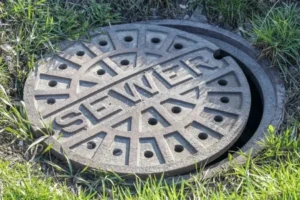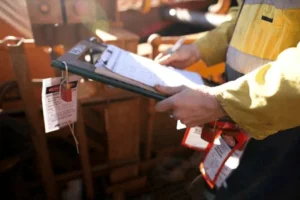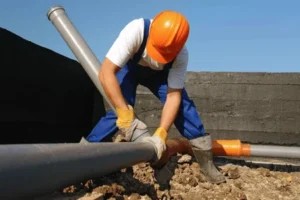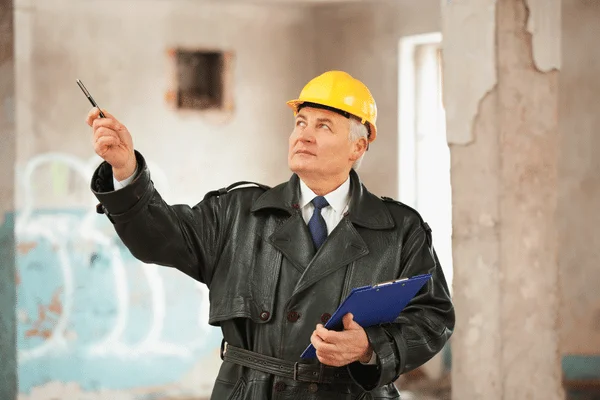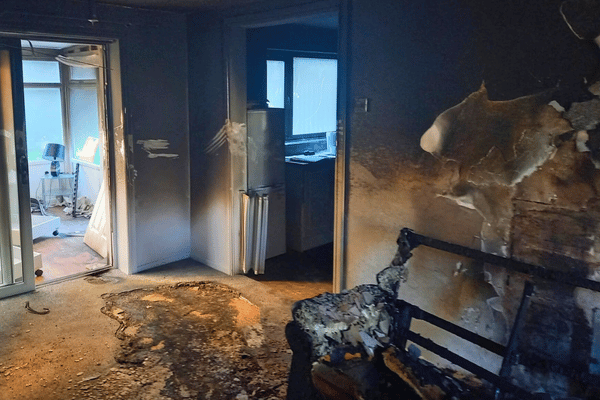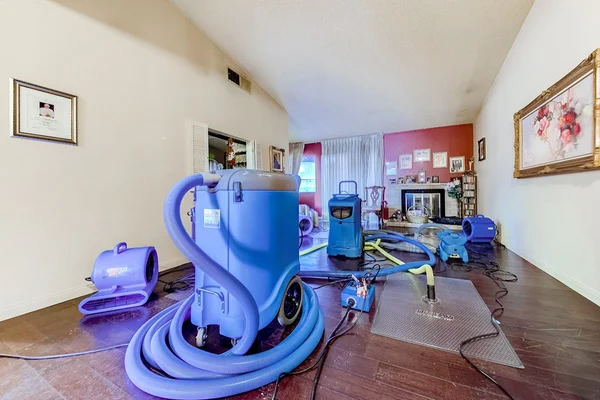Replacing a sewer line isn’t always a straightforward task—and neither is determining the requirements. Many homeowners ask, “Do I need a permit to replace my sewer line?” The answer depends on several variables, including your location and the complexity of the job.
In most cases, yes—you’ll need a sewer line replacement permit before beginning any work. Plumbing permit requirements vary by location, but they typically ensure the project follows residential sewer line codes. These regulations help protect public health and ensure the work meets safety standards. Always check with your local building authority to confirm the necessary requirements before scheduling your sewer replacement project.
In this blog, we’ll walk through the general things you should know before moving forward.
Do I Need a Permit to Replace My Sewer Line?
It’s essential to determine whether a permit is required when considering replacing your sewer line. Understanding the guidelines can save you time and hassle in the long run.
When a Permit Is Typically Required
Permits are typically required for major sewer line work, especially when excavation or significant replacement is involved. If you’re connecting to the central sewer system or altering the route of the existing line, a permit is often necessary. Local building codes—and especially plumbing permit requirements—play a key role in determining whether a permit is needed.
In areas with stricter regulations, the chances of needing official approval increase significantly. Failing to comply can result in costly fines, failed inspections, or delays in your project. Before beginning any work, it’s essential to contact your municipality or local building department. It’s always better to confirm permit needs in advance rather than face the consequences of non-compliance later on.
Situations That May Be Exempt from Permits
Some homeowners might be surprised to learn that certain situations can exempt them from needing a permit for sewer line replacement. Here are some common situations where a permit may not be necessary:
- Private property repairs – If the replacement occurs within your property and doesn’t affect the main sewer line.
- Minor fixes – Small leaks, cracks, or minor joint repairs often don’t require permits.
- Interior plumbing work – Some areas exempt repairs made inside the home’s plumbing system.
- Routine maintenance – Basic cleaning or unclogging without altering the line typically does not require a permit.
- Pre-approved exemptions – Some municipalities provide specific exemptions for homeowners.
Why Permits Matter in Sewer Line Replacement
Permits play a crucial role in sewer line replacement, ensuring compliance with local laws and regulations, as well as maintaining safety standards. Without the proper permits, you may face legal issues and complications with insurance claims in the future.
Legal Compliance and Safety
Understanding permit requirements for sewer line replacement is essential to avoid legal issues and ensure safety. Without proper permits, homeowners risk fines, denied insurance claims, and potential hazards. Regulations are in place to protect residents and infrastructure, making compliance crucial. Here are key reasons why permits matter:
- Avoid legal penalties – Failing to obtain a permit can result in fines and legal action.
- Ensure insurance coverage – Some insurers may deny claims for work that is not permitted.
- Meet safety standards – Permits ensure work aligns with health and safety regulations.
- Prevent future complications – Non-compliant installations may require costly repairs.
Inspection and Approval Process
After obtaining a permit, inspections by professionals ensure that sewer line replacements comply with local codes. This process safeguards against improper installations that could cause damage or health risks. Here’s how the inspection process typically works:
- Pre-installation review – Inspectors may examine plans before work begins.
- On-site inspection – Authorities verify compliance before covering the replaced line.
- Clarifications and corrections – Inspectors may require adjustments for approval.
- Final approval – Successful inspections confirm regulatory compliance.
Insurance and Home Value Considerations
Properly permitted sewer line work helps maintain insurance coverage and protects property value. Failure to follow regulations may result in financial setbacks. Here’s why obtaining permits is essential:
- Boost resale value – Buyers prefer homes with documented, compliant repairs.
- Ensure insurability – Insurance policies often require permitted work to ensure coverage is adequate.
- Prevent financial losses – Unapproved work can lead to denied claims and costly repairs.
- Guarantee quality work – Permitted projects meet industry standards for durability and reliability.
Related: Consequences of a Sump Pump Failure
How to Get a Sewer Line Replacement Permit
Obtaining approval for a sewer line replacement involves several key steps. Let’s break down these essential points to help make the process smoother for you.
Who Issues the Permit?
Your local municipality is responsible for issuing permits for the replacement of sewer lines. Typically, this is handled by the building department, though some areas have public works or environmental services offices that oversee plumbing permit requirements.
Checking the official website or contacting the department directly ensures you get the correct guidelines and fee details. Having property information ready can help speed up the process. A quick call or online inquiry can clarify where to submit your application.
What You’ll Need to Provide
Before starting your project, do I need a permit to replace my sewer line? If the answer is yes, be prepared to gather several key documents for the application. These typically include:
- Property details – The address and legal description of the site.
- Work plans – A clear and detailed outline of the proposed sewer line replacement.
- Contractor credentials – Proof of licensing and insurance if you’re hiring professionals.
- Application form – Includes your contact information and a summary of the project.
- Homeowner approvals – If required by your local regulations or HOA guidelines.
Having these ready can streamline the permit process and help avoid delays.
Costs and Processing Times
Permit fees for sewer line replacement vary, usually ranging from $50 to several hundred dollars. Exact costs depend on location and project complexity. Approval times also vary, with some permits being processed within a few days while others may take several weeks.
Factors such as municipal workload and application completeness impact the timing. To avoid delays, ensure all documents are submitted correctly and follow the guidelines closely. Preparing in advance can help streamline the process and prevent unexpected expenses.
Risks of Skipping the Permit Process
Skipping the permit process for your sewer line replacement can lead to hefty fines and unexpected delays. If you ever decide to sell your property, having unpermitted work can complicate the sale and create legal issues.
Fines, Delays, and Redoing Work
Skipping the sewer line replacement permit might seem like a shortcut, but it can lead to costly consequences. Local inspectors can issue hefty fines if the work doesn’t comply with residential sewer line codes. Delays are also common when unpermitted work is identified, often halting progress until necessary approvals are obtained.
In some cases, you may be required to redo sections to meet proper standards, which can increase your timeline and expenses. What starts as an attempt to save money can quickly spiral into a larger issue. Following the proper permit process helps avoid these unnecessary setbacks.
Property Resale and Legal Trouble
Failing to secure proper approval for sewer line work can complicate the sale of your home. Unpermitted projects often raise red flags during inspections and may suggest noncompliance with residential sewer line codes. This can result in lower offers, delayed closings, or even cause potential buyers to walk away entirely.
Even worse, you may be held responsible for fixing issues or covering legal liabilities after the sale. Local authorities can also require you to bring the work up to code, which can add unexpected costs. Protect your property’s value and future by ensuring everything is permitted and documented adequately from the start.
Do I Need a Permit to Replace My Sewer Line – Final Thoughts
Whether a permit is required depends on local regulations and the scope of your project. Major replacements often need approval, especially if public infrastructure is involved. Checking with your municipality ensures compliance, preventing fines and future complications.
Do I need a permit to replace my sewer line? This question is crucial for avoiding unnecessary risks and ensuring your project meets legal standards. Permits also safeguard your investment and help maintain insurance coverage. Skipping this step can lead to costly issues down the line. Confirm requirements early to ensure a smooth and hassle-free process. Taking the time now saves trouble later.
Not Sure If You Need a Sewer Permit? Call Our Experts Today!
Frequently Asked Questions
1. How Long Does It Take to Obtain a Sewer Line Permit?
2. Are There Fees Associated With Obtaining a Sewer Line Permit?
3. Can I Replace My Sewer Line Without Professional Help?
4. What Documents Are Needed for a Sewer Line Permit Application?
5. Are There Specific Codes to Follow When Replacing a Sewer Line?


